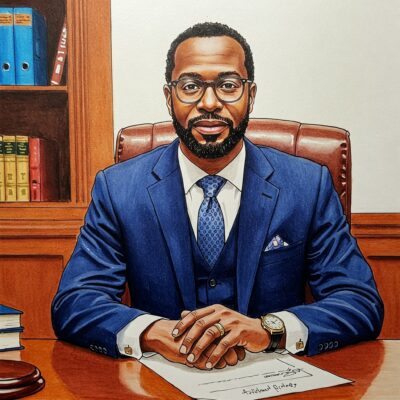Constitutional lawyers specialize in interpreting, defending, and challenging constitutional laws. They handle cases related to civil liberties, governmental powers, and constitutional rights, often working to uphold justice and democratic principles.
What is a typical day as a Constitutional Lawyer?
– Reviewing constitutional provisions and their applications in legal cases
– Representing clients in cases involving fundamental rights, government powers, or constitutional amendments
– Drafting legal arguments, briefs, and petitions for court submissions
– Advising policymakers or organizations on constitutional compliance
What else might they be expected to do?
– Advocate for constitutional reforms or amendments to address evolving societal needs
– Conduct public awareness campaigns to educate citizens about their constitutional rights
– Collaborate with academic institutions or think tanks on constitutional law research
What type of training is needed for this career path?
– A Bachelor’s degree in Law (LLB) is required, followed by admission to the bar in Kenya.
– Advanced training or certifications in constitutional law or public law enhance effectiveness.
– Practical experience in litigation or advocacy related to constitutional matters is highly valuable.
What kind of personality is needed to excel in this career path?
– Analytical, determined, and ethical individuals thrive in this role.
– Big 5 traits: Conscientiousness and Openness.
– Myers-Briggs types: INFJ or INTJ often align with this career.
What kind of interests do people in this career path have?
– Passion for upholding justice, democracy, and civil liberties (Investigative and Enterprising traits).
– Interest in advocacy, legal interpretation, and governance.
– Interests & Aptitude: Investigative (I), Enterprising (E), and Social (S)
Are there any innate skills or aptitudes required?
– Strong analytical and critical-thinking skills to interpret constitutional provisions
– Communication skills to present persuasive arguments in court
– Research skills to gather precedents and develop compelling cases
What challenges can I expect to face if I pursue this career path?
– Navigating politically sensitive or contentious cases
– Managing the complexity of constitutional interpretations and precedents
– Balancing public expectations with legal and ethical constraints
What are the job prospects for this path in Kenya and Africa? What about International prospects for a Kenyan citizen?
– Kenya and Africa: Constitutional lawyers are in demand for cases involving governance, civil rights, and electoral disputes. Opportunities exist in law firms, NGOs, and public institutions.
– International: Kenyan professionals with expertise in constitutional law can work with international organizations focused on governance, human rights, or constitutional reforms, such as the United Nations or the African Union.
What should I focus on if I choose to pursue this career?
– Develop expertise in constitutional law through specialized coursework or certifications.
– Gain practical experience through internships in law firms or public interest organizations.
– Build networks with legal professionals, policymakers, and advocacy groups.
Which other careers or job roles can I progress to?
– Policy Advisor in Governance or Civil Rights
– Human Rights Lawyer
– Judge or Magistrate
– Academic Lecturer in Constitutional Law
– Advocacy Specialist in Public Law

